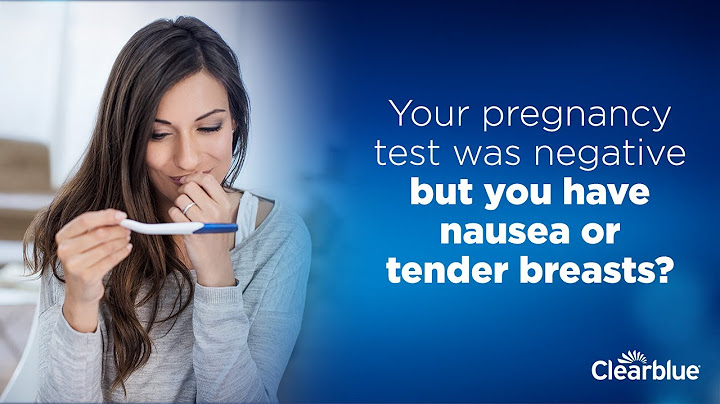Life WavebreakMediaMicro/Fotolia Whether you're dying to get the pregnancy ball rolling, or desperately hoping to remain baby free, you might ask, can you take a pregnancy test a week after sex? It depends on where you were in your cycle when said sex took place, but really, a week is almost definitely too soon. Parents noted that pregnancy tests are reliable, but only if you get the timing right. If you take a pregnancy test too early, you'll likely waste money (those things aren't cheap), and a lot of nervous energy over nothing. According to public health economist Emily Oster's book Expecting Better, you have basically zero chance of catching a baby for most of the month. The best chance of getting pregnant is on the day you actually ovulate, and there is almost no chance of getting pregnant after ovulation (because that egg-shaped ship has sailed). After implantation, it takes a few days for your body to produce detectable levels of hCG, the hormone that pregnancy tests rely on to give you the news. In Jean M. Twenge's book The Impatient Woman's Guide to Getting Pregnant, she noted that many pregnancy tests claim to be able to detect your pregnancy six or seven days after ovulation. She cited a North Carolina study, however, that showed that even with super-sensitive lab tests, the earliest hCG could be detected was nine days post ovulation. Twenge further noted that if you're using a home pregnancy test, you shouldn't expect a positive result until at least 11 days after ovulation. The first day of your period marks the first day of your cycle, and you'll likely ovulate around day 14, though that can vary one or two days in either direction. There's also a lot of variation among individuals, according to the American Pregnancy Association, and so counting 14 days from your period might not actually tell you when you ovulated. In general, however, expect to see the most accurate results from a home pregnancy test starting at around day 25 of your cycle. Taking all this into account, it's pretty much impossible to get an accurate test result a week after you have sex. You might as well save the money and shake a magic 8 ball. I know it can be difficult to wait, but your patience will pay off. Eat some ice cream if you have to, and take some deep breaths. If you're trying to get pregnant and want to know exactly when you're ovulating, you can purchase an ovulation kit to really get down to business. If you’ve had unprotected sex recently, then you’re probably thinking about taking a pregnancy test. And you’ve probably got a few questions about them. Like ‘How long do I need to wait before taking one?’ and ‘How do I make sure I’m getting the most accurate results possible?’ To answer those questions (and more), we spoke to Dr. Anna Whelan, an OB-GYN and maternal-fetal medicine fellow at the Women and Infants Hospital of Rhode Island. Rule of thumb: For the most accurate results, wait a minimum of two weeks after having unprotected sex to take a pregnancy test, said Dr. Whelan. That’s true for both at-home and blood tests. That’s because your body needs time to build up hCG, the hormone that’s produced during pregnancy. And the one that’s analyzed in pregnancy tests. If you take a pregnancy test too early, there’s a chance you could get a false negative. How accurate are pregnancy tests?To test for pregnancy, you have two options. And they’re both precise. An at-home test is 97% to 99% accurate when used correctly (more on that below). A blood test, performed at a doctor’s office or lab, is around 99% accurate. If you get a positive result at home, call your doctor. Your provider can help you confirm the pregnancy. But it’s rare to get a false positive result. So even if the lines on the test are faint, it still means you’re pregnant. A blood test, ordered by a doctor, is your other option. Note: A blood test can detect lower levels of hCG than an at-home test can, but it can take longer to get results due to lab processing, said Dr. Whelan. After getting a positive result at home, it’s common for a doctor, at your first appointment, to order a blood test to confirm the results. Your doctor might also order a blood test if you’re experiencing bleeding or abdominal pain, which can be symptoms of a potential miscarriage. How can I make sure the pregnancy test results are as accurate as possible?Experts recommend you:
theSkimmOf course you’ll want to know as soon as you can if you’re pregnant. But to get the most accurate results, it’s best to wait at least two weeks after having unprotected sex before taking a pregnancy test. And if you’re confused or concerned about your test results, speak with your medical provider. Can you tell if you're pregnant after a week of intercourse?Since conception, or the fertilization process, happens about two weeks before your period, and it takes about two weeks for your hCG levels to be high enough to be detected in urine, you can take a pregnancy test one day after a missed period, though the FDA recommends waiting for 1-2 weeks “for most reliable results” ...
Can a pregnancy test read at 1 week?Thankfully, urine-based pregnancy tests have evolved substantially. Women now have access to advanced tests that can detect a pregnancy as early as eight days after ovulation.
|

Related Posts
Advertising
LATEST NEWS
Advertising
Populer
Advertising
About

Copyright © 2024 ko.wiewird Inc.



















